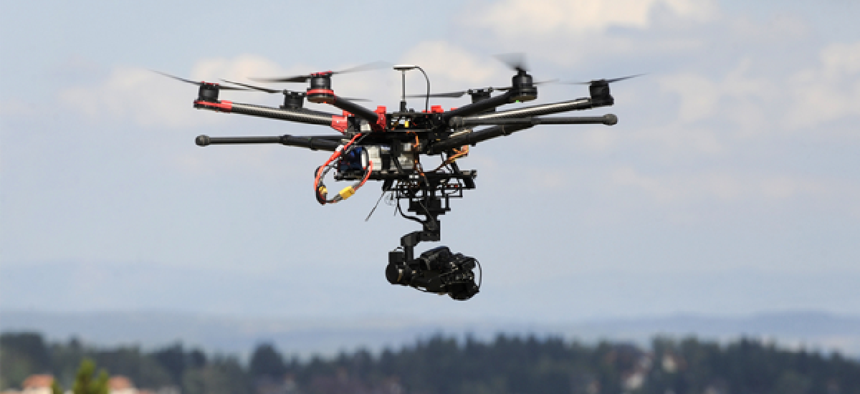Direct or disable: Two states take on drone growth


Connecting state and local government leaders
Kansas appoints its first Director of Unmanned Aircraft Systems, and Utah proposes legislation to ‘neutralize’ drones over wildfires by jamming their signals or shooting them down.
The state of Kansas now has a Director of Unmanned Aircraft Systems -- in other words, a drone director.
The state’s Department of Transportation tapped Bob Brock, a 22-year U.S. Air Force veteran, to “oversee the establishment of policy and procedures” for the operation of UAS in Kansas. Brock has experience in UAS operations and training from the Air Force, and has also served as a flight safety officer and instructor pilot.
The state hopes to leverage Brock’s skillset to develop its drone program. In the announcement, Brock said his priorities include protecting the privacy and safety of citizens as drone usage increases and working with the Federal Aviation Administration, aviation leaders and universities to cost-effectively deliver the systems to do so.
Brock will have offices at Kansas DOT headquarters and at the Kansas State University Polytechnic Campus, which offers a bachelor’s degree in unmanned aircraft systems.
Utah, meanwhile, is taking steps to legally disable UAS after drone traffic flying over a wildfire interfered with firefighting efforts, the Salt Lake Tribune reported.
During the Saddle Fire in southwestern Utah, the drones allegedly caused firefighters to ground their air tankers to avoid a collision. The fire was able to spread more acres, putting more communities at risk and costing $8 million in additional expenses.
This prompted Utah Gov. Gary Herbert to call lawmakers to a special session on July 13 to propose emergency legislation. The bill intends to “crack down” on the drones flying over the wildfires by allowing fire bosses to either jam the UAS signals electronically, force them to crash or shoot them down.
The bill would also increase penalties associated with inappropriate use of drones. It would be a class B misdemeanor to fly a drone over a fire, a class A misdemeanor if the drone keeps an air tanker from using fire retardant, a third-degree felony if the drone crashes into a firefighting aircraft and a second-degree felony if the collision causes the firefighting aircraft to crash. The Tribune said the governor is expected to sign the bill.
NEXT STORY: Can drones save the black-footed ferret?




